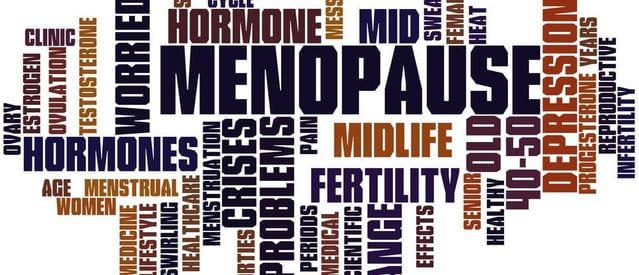If you’re a woman in her 40s or 50s, you’ve probably given some thought to how perimenopause and menopause might affect your health. It’s a topic that comes up in conversation with my patients quite a bit.
Sleep affects every part of your life, and has an incredibly broad influence over your health. When thinking about the health risks that arise or change during menopause, it’s important to also think about sleep as a factor. Sleep can influence and be influenced by a woman’s health and other health conditions as she moves through menopause.
Let’s take a closer look at some of the health risks that can occur during menopause, and how sleep is involved.
Sleep disorders
Difficulty sleeping during menopause is what brings many women to my office. Even women who have slept soundly and well for years find themselves struggling in new ways with sleep during perimenopause and menopause. The decline of sleep-promoting hormones including estrogen and progesterone is one big reason for disrupted sleep. And the other symptoms of menopause—from mood swings and anxiety to night sweats—also contribute to sleep problems for women. Production of another critical hormone for sleep—melatonin—also decreases with age, which can compound sleep problems for women during menopause and beyond.
Research shows women’s risk for sleep disorders increases as she moves through the menopausal transition. Among my patients in perimenopause and menopause, I see three sleep disorders in particular occurring more frequently:
Insomnia becomes increasingly common for women during menopause—and I see it present different symptoms from one woman to another. Some women may have new difficulty falling asleep, often the result of stress, anxiety, and a racing mind. Many women find themselves waking more often in the night, a result of night sweats or needing to use the bathroom more often. I hear from many women in menopause that they wake very early in the morning, their minds leaping right into first gear, leaving them unable to fall back asleep. Any of these insomnia symptoms can result in starting the day feeling tired, unrefreshed, and unfocused.
Insomnia, especially when it is chronic, can do more than make you feel tired, fatigued, and irritable. Insomnia can:
Restless leg syndrome
Women are about twice as likely as men to experience restless leg syndrome, or RLS. RLS becomes more common in women during pregnancy, when studies show as many as 30 percent or more women experience this uncomfortable sleep disorder, with its hallmark symptom of tingling, creepy-crawly sensations in the legs at night. (Most, but not all, pregnancy-related RLS ease after childbirth.)
Scientists haven’t yet clearly identified the role that women’s hormones play in RLS, or how menopausal changes influence RLS. We need more research in this area! We do know—and I see this in my own patients—women with RLS often tend to experience more severe symptoms of RLS in post-menopause. One study of RLS patients found 69 percent of post-menopausal women perceived their symptoms as worse than before menopause.
RLS can lead to significant daytime fatigue. Its unpleasant symptoms make it hard for people to fall asleep, compromising sleep quality and sleep quantity.
Obstructive Sleep Apnea
For a long time, sleep apnea was thought of by many people—including some physicians—as a “men’s” sleep problem. Fortunately, that perception is changing, though we still have a way to go. It’s true that in the general population, obstructive sleep apnea occurs more often in men than in women. But women’s risk for sleep apnea increases significantly with the transition to menopause. Research shows post-menopausal women are at greater risk for OSA compared to pre-menopausal women. And they’re more likely to experience more severe sleep apnea. Weight gain that is associated with menopause is likely one factor in the increased risk—but there’s more to learn here about the connection between menopause and sleep apnea.
Just recently, this study caught my eye: research showed that night sweats and hot flashes may be linked to increased risk for sleep apnea. In this research, women who experience severe hot flashes and night sweats were found to have nearly twice the risk of obstructive sleep apnea than women with mild hot flashes, or none at all.
Most people know the symptom of sleep apnea as loud snoring and gasping. That’s true. But women may also experience other, less well-known symptoms of OSA, including headaches, insomnia, signs of depression or anxiety, and daytime fatigue. Men and women experience sleep apnea differently, and women’s symptoms may be somewhat subtler and harder to pinpoint than men’s. Not all women with OSA will show signs of the loud snoring and snorting during sleep—but even without this particular symptom, you may still be experiencing sleep disordered breathing that is sleep apnea. It’s important to be an advocate for yourself with your physician. If you have any of the symptoms I’ve mentioned above, share them with your doctor and ask your doc to look at OSA as a possible cause.
Next week we will discuss a few more health risks that can occur during menopause, and how sleep is involved.
Sweet Dreams,
This content was originally published here.







